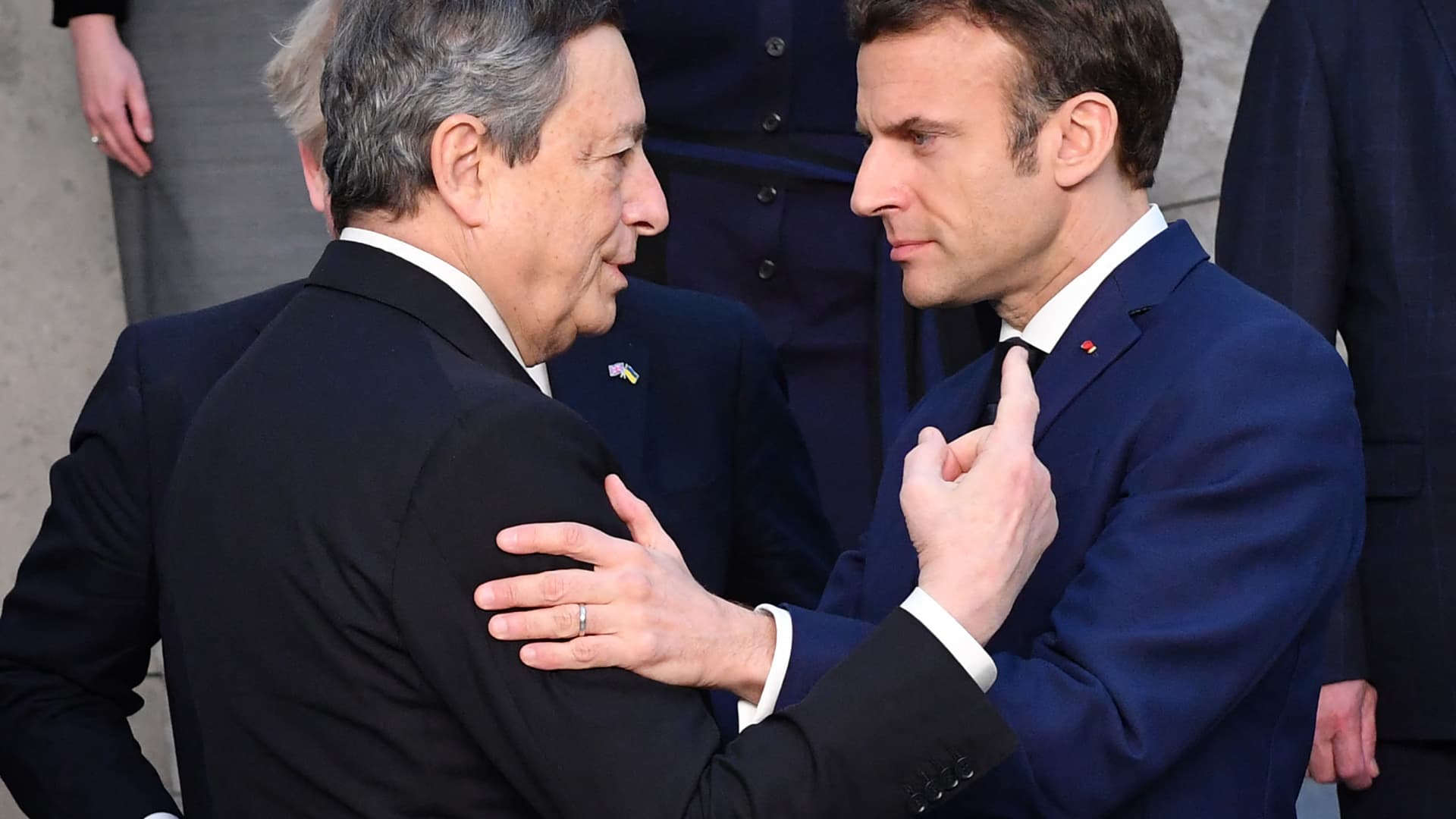EU leaders send a message to China: Use your leverage to stop Putin

BRUSSELS, Belgium — EU leaders had one message for Beijing as they gathered in Brussels to discuss new sanctions against Russia: stop President Vladimir Putin.
Chinese authorities have so far refused to fully condemn Russia’s unprovoked invasion of its neighbor and have supported Moscow’s complaints about NATO expansion.
United States officials have also said that Russia has asked China for military and economic support — something that the Kremlin and Beijing have both denied.
Speaking to CNBC Thursday, Italy’s Prime Minister Mario Draghi said: “China is [the] most important country, they can be crucial in the peace process, they have lots of leverage, a lot of leverage, and so we are all waiting.”
Latvia’s Prime Minister Arturs Karins also told CNBC: “China has a choice, it’s rather a simple choice: put your lot in with Russia — that is waging war against Ukraine, bombing women, children, hospitals — or find a way to work with Europe, with the U.S. and with western democracies.”
Finland’s Prime Minister Sanna Marin also called China a “major player” and said the European Union had to make sure “China is on the right side of history with this war.”
Marin added that “if China helps Russia, then sanctions won’t work [in] the way we want them to work.”
The European Union, alongside the U.S., the U.K., Canada and others, have imposed various rounds of sanctions on Moscow for its initial invasion and subsequent war in Ukraine.
These are expected to contribute to a 15% contraction for the Russian economy this year, which combined with a 3% drop next year means wiping out 15 years of economic growth, according to the Institute of International Finance.
However, further economic pain could be on the way.
The U.S. announced earlier on Thursday that it plans to sanction about 400 Russian individuals and the 27 EU leaders are also discussing the possibility of imposing new penalties as they gather for a two-day meeting in Brussels.
Speaking to CNBC, the EU’s Foreign Affairs Chief Josep Borrell said he expected new guidance from the heads of state on “how to continue increasing the sanctions, personal sanctions and sectoral sanctions.”
Nonetheless, European leaders are unlikely to go as far as imposing a full ban on Russian oil, for now.
Although a number of EU member states, notably Poland and the Baltic nations, are in favor of an immediate ban; other nations are skeptical about taking this step fearing economic consequences.
Estonia’s Prime Minister Kaja Kallas said that the issue is the varying levels of dependency on Russian energy for nation states, and the impact that an oil ban could have among European citizens.
“What we have to understand is that every country or government is dependent on the public opinion and unfortunately Europeans’ patience regarding their own conveniences is maybe not that long. So we don’t have much patience regarding this and this is creating problems for putting [on] more sanctions,” she said.
“The public has to also support those and we have to understand that difficult times lay ahead,” she added.




